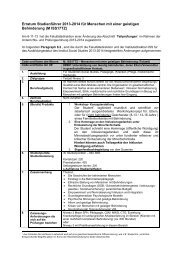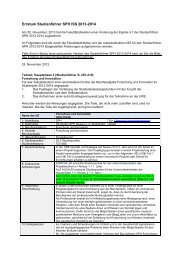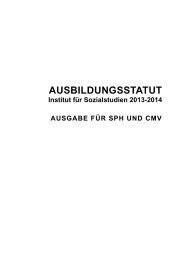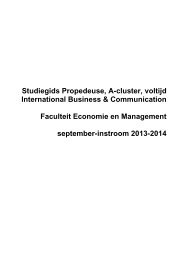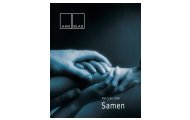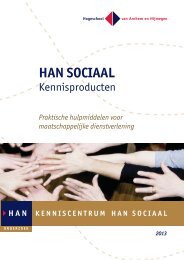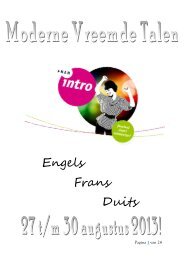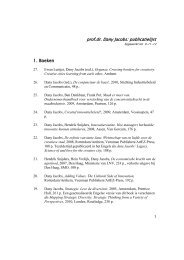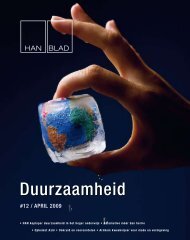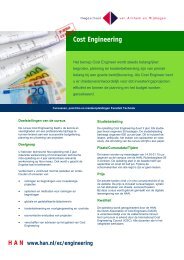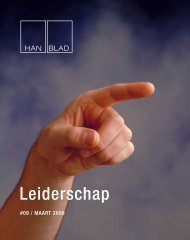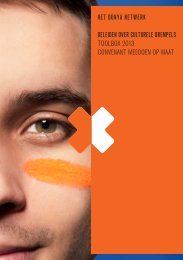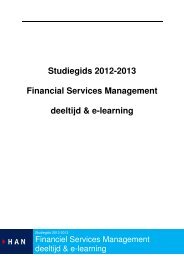Faculty of Health and Social Studies - Hogeschool van Arnhem en ...
Faculty of Health and Social Studies - Hogeschool van Arnhem en ...
Faculty of Health and Social Studies - Hogeschool van Arnhem en ...
Create successful ePaper yourself
Turn your PDF publications into a flip-book with our unique Google optimized e-Paper software.
8<br />
Institute <strong>of</strong><br />
<strong>Social</strong> <strong>Studies</strong><br />
institute <strong>of</strong> social studies<br />
<strong>Social</strong> <strong>Studies</strong> trains stud<strong>en</strong>ts in the field <strong>of</strong> social pr<strong>of</strong>essions:<br />
supporting, treating <strong>and</strong> assisting people who are in a tight<br />
spot or who need help in giving shape to their lives, <strong>and</strong> people<br />
who want to participate in social <strong>and</strong> cultural activities. A social<br />
degree course teaches stud<strong>en</strong>ts to effectively apply their help<br />
<strong>and</strong> service providing abilities, their creativity <strong>and</strong> their<br />
organisation tal<strong>en</strong>ts. The six Bachelors courses are:<br />
Arts Therapy<br />
Throughout the c<strong>en</strong>turies, people have expressed their<br />
unspok<strong>en</strong> feelings through art. As an art therapist you<br />
use creativity to help people who are stuck in a situation.<br />
Artstherapists always work from a cli<strong>en</strong>t’s guiding question. You<br />
ease problems <strong>and</strong> improve the quality <strong>of</strong> life. Arts therapy is<br />
mostly about doing <strong>and</strong> experi<strong>en</strong>cing. You make use <strong>of</strong><br />
differ<strong>en</strong>t forms <strong>and</strong> means <strong>of</strong> therapy:<br />
Bachelors courses<br />
• Arts Therapy<br />
• Cultural <strong>Social</strong> Developm<strong>en</strong>t<br />
• <strong>Social</strong> Work <strong>and</strong> Services<br />
• Educational Theory<br />
• <strong>Social</strong> Educational Care<br />
• Applied Psychology<br />
Arts Therapy comprises drama therapy, art therapy, music<br />
therapy <strong>and</strong> psychomotoric therapy. Cultural <strong>Social</strong><br />
Developm<strong>en</strong>t <strong>and</strong> <strong>Social</strong> Educational Care focus more on<br />
working with groups <strong>of</strong> people in institutions <strong>and</strong> organisations,<br />
in their daily lives <strong>and</strong> in several recreational, educational<br />
<strong>and</strong> cultural settings. Arts Therapy, <strong>Social</strong> Work <strong>and</strong> Services<br />
<strong>and</strong> Applied Psychology mainly train stud<strong>en</strong>ts for individual<br />
social work situations. Educational Theory focuses on helping<br />
childr<strong>en</strong> <strong>and</strong> their par<strong>en</strong>ts/guardians in a normal or disrupted<br />
upbringing situation. The other courses are focused on learning<br />
how to work with all age groups. A special feature <strong>of</strong> the courses<br />
Cultural <strong>Social</strong> Developm<strong>en</strong>t <strong>and</strong> <strong>Social</strong> Educational Care in<br />
Nijmeg<strong>en</strong> is that stud<strong>en</strong>ts learn how to use their head, heart<br />
<strong>and</strong> h<strong>and</strong>s. In working with cli<strong>en</strong>ts <strong>and</strong> participants, graduates<br />
apply differ<strong>en</strong>t creative means such as play, arts <strong>and</strong> games &<br />
sports. The Cultural <strong>Social</strong> Developm<strong>en</strong>t <strong>and</strong> <strong>Social</strong> Educational<br />
Care courses are also <strong>of</strong>fered part-time (in Dutch <strong>and</strong> German).<br />
Drama<br />
You express feelings by using your s<strong>en</strong>ses, posture <strong>and</strong><br />
movem<strong>en</strong>ts, your voice, facial expression, improvisation,<br />
spontaneity, communication <strong>and</strong> teamwork. Your cli<strong>en</strong>t thus<br />
experi<strong>en</strong>ces reality; he can change it or learn to accept it.<br />
Art<br />
Which materials do you choose <strong>and</strong> what colour? Which shape<br />
do you create <strong>and</strong> how are these elem<strong>en</strong>ts related to each other?<br />
Your cli<strong>en</strong>t creates his own view <strong>of</strong> reality with the work <strong>of</strong> art, to<br />
which you can both give ‘meaning’.<br />
Music<br />
Playing music yourself is the key. It is mostly about improvising,<br />
composing, notation <strong>of</strong> <strong>and</strong> list<strong>en</strong>ing to music. Music provides<br />
structure. In a marching b<strong>and</strong> you follow the march rhythm<br />
without ev<strong>en</strong> realising it. Unnoticed, you tap your feet to the<br />
rhythm <strong>of</strong> the music. You use this emotional <strong>and</strong> structuring<br />
effect <strong>of</strong> music in music therapy.<br />
Movem<strong>en</strong>t<br />
In psychomotoric therapy cli<strong>en</strong>ts literally start moving again.<br />
You use movem<strong>en</strong>t <strong>and</strong> body-ori<strong>en</strong>ted forms <strong>of</strong> therapy. Your<br />
cli<strong>en</strong>ts literally st<strong>and</strong> still <strong>and</strong> think about what moves them.<br />
They experi<strong>en</strong>ce themselves physically, in action <strong>and</strong> interaction<br />
with others. They feel how they are, what they do <strong>and</strong> what it is<br />
like to do it differ<strong>en</strong>tly.



